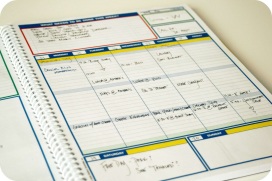When I teach study skills classes, I often share this quote by the Roman Stoic Philosopher named Seneca. It is a beautiful and simple metaphor illustrating how intrinsically goals are related to success. Even though most of us wouldn’t set out on a trip without knowing where we were going and how we would get there, many of us set out on a life path without any true plans, preparations, evaluations or goals. Perhaps we have jumped into the boat, but what happens after that? Do we know how to control the sails? Do we know what to do when a storm approaches. Do we know how to read the instruments and chart a course? Do we know the specifics of our destination and what it takes to get there?
If a student approaches their college education without thinking through any of these things, success will be elusive. Are you guilty of blindly jumping into the boat? Whenever we discover we are free-floating without a true purpose, it’s a good idea to take a time out to do some self-analysis. My personal approach to this is to take a nice journal or notebook to a place where I can sit uninterrupted and meditate about the course I am currently taking. Writing helps me to think through things. I can make lists of relevant things, such as goals or steps I might need to take to get somewhere in particular. I’d recommend this practice for anyone who finds themselves in a place where they are kind of “free styling” life. While that can be fun for the short term, it is typically a course toward nothing. Where do you want to be 5 or 10 years from now. Write out your dreams, your goals, your past successes and failures… and then think about what alterations you need to make in your current course in order to reach the “harbor” you would ultimately like to reach.
Here are some questions you can ask yourself while meditating and journaling:
- Where do you see yourself in 5 years?
- How do you expect to get there?
- What potential obstacles will you face? How will you deal with them?
- Imagine yourself facing potential obstacles and think about how you will overcome them. How can you encourage yourself to do this? Maybe you can write yourself a note on an index card and tape it to your bathroom mirror. Right now, I have a little note taped to mine that says, “Perseverance pays off!”
- What is the first step you must take to begin this journey? What is the second step?
- How will you know when you reach your destination?
- How will you celebrate? How do you envision your celebration and who will be there to celebrate with you?
Try to revisit your notebook or journal every week and see if you are still on course. Treat it as if it is your compass. If you have gotten off course, what alterations do you need to make? Write them down and commit to them. Take time to evaluate and make adjustments every so often. These things will virtually guarantee progress and eventual success in reaching your ultimate harbor.
Success!


